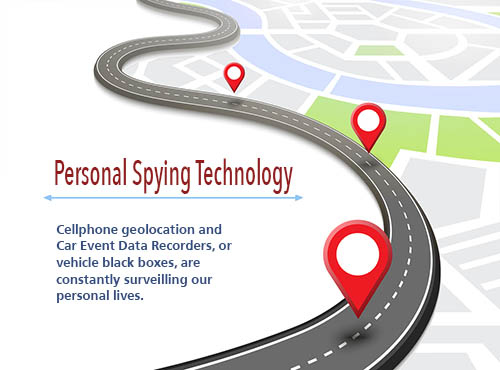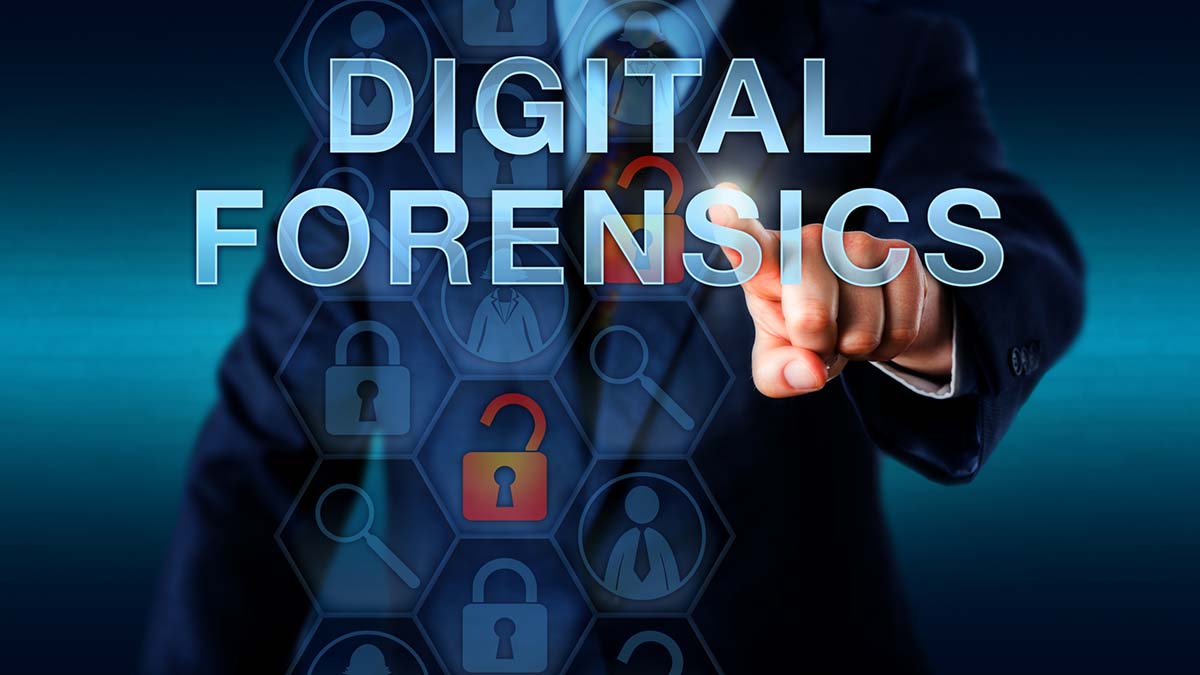Recent cases continue to reveal the advancements in technology and how they are used, both properly and improperly, to track our movements, actions and private lives.
First, new cars have increasingly sophisticated technology. Roadside assistance features and other devices track our vehicles’ locations, speed and other relevant activities. Most vehicles are now equipped with Event Data Recorders, also known as a vehicle black box. Local police departments are now equipped to retrieve and analyze the black box data and use it against you in court. As of May 2018, almost all U.S. vehicles come standard with a black box installed.
Every time you get behind the wheel, every button you press and every maneuver you make is being recorded. The data is stored in the black box to be readily accessible after collisions, such as seatbelt closure, brake usage, blinker usage, airbag deployment and travel speed. All of this information, once retrieved, will either confirm or contradict your account of what happened. If you wanted to remain silent and limit the evidence the government can use against you in a criminal prosecution, you’re out of luck when your car’s black box does the talking for you.
While the law is still developing, some states require the police to obtain a warrant to retrieve the black box data, while others do not. Litigants have argued that there is an expectation of privacy in the detailed information recorded by these devices and that the owner of the vehicle does not consent to its retrieval and use simply by purchasing a car with such a device.
In states that do not require a warrant, the courts have held that such information is not private, that any member of the public can observe a vehicle’s speed or see whether the driver is wearing a seatbelt. Other jurisdictions recognize that the information recorded by these devices is much more detailed than a member of the public could observe and that the information requires a warrant to obtain.
Even more ubiquitous than our cars are our cellphones. It was recently publicized that T-Mobile, Sprint, and AT&T are selling access to their customers’ location data, and that data is ending up in the hands of bounty hunters and others not authorized to possess it, letting them track most phones in the country.
Geolocation of cellphones is readily accessible to providers and to law enforcement with a warrant. However, it was recently uncovered that companies sell this highly personal information to other companies that then resell it to people not authorized to that access. For a fee, cellphones can be tracked and a screenshot of Google Maps, containing a blue circle indicating the phone’s current location, within a few hundred yards, is sent to the purchaser of the information.
At least one company, called Microbilt, is selling phone geolocation services with little oversight to a variety of different private industries, ranging from car salesmen and property managers to bail bondsmen and bounty hunters, according to a recent article in Motherboard. Making matters worse, Motherboard reports that this spying capability is also being resold to others on the black market who are not licensed by the company to use it seemingly without Microbilt’s knowledge.
Your mobile phone is constantly communicating with nearby cell phone towers, so your provider knows where to route calls and texts. This information allows providers and others to locate the phone’s approximate location based on its proximity to those towers.
In its investigation, Motherboard staff posed as a potential customer, and asked a Microbilt customer support staffer whether the company offered phone geolocation for bail bondsmen. Shortly after, another staffer emailed with a price list, locating a phone can cost as little as $4.95 each if searching for a low number of devices. That price gets even cheaper as the customer buys the capability to track more phones. Getting real-time updates on a phone’s location can cost around $12.95.
The attachment we have to our new cars, cellphones, home security systems, Alexa-like devices and many other internet connected devices add value to our lives and save time. These positive values must be weighed against the ability of the providers, law enforcement, private companies and hackers to access and use the very private information inadvertently revealed by us in our homes, offices and cars.
About the Author
Robert Stahl, and his firm, Stahl Gasiorowski Criminal Defense Lawyers aggressively defend individuals charged with complex federal and state crimes. Founder Robert G. Stahl is recognized as one of the top criminal defense attorneys in the NY/NJ area for his skills, knowledge and success. To contact the firm, call 908.301.9001 for the NJ office and 212.755.3300 for the NYC office, or email Mr. Stahl at rstahl@stahlesq.com.




Leave A Comment